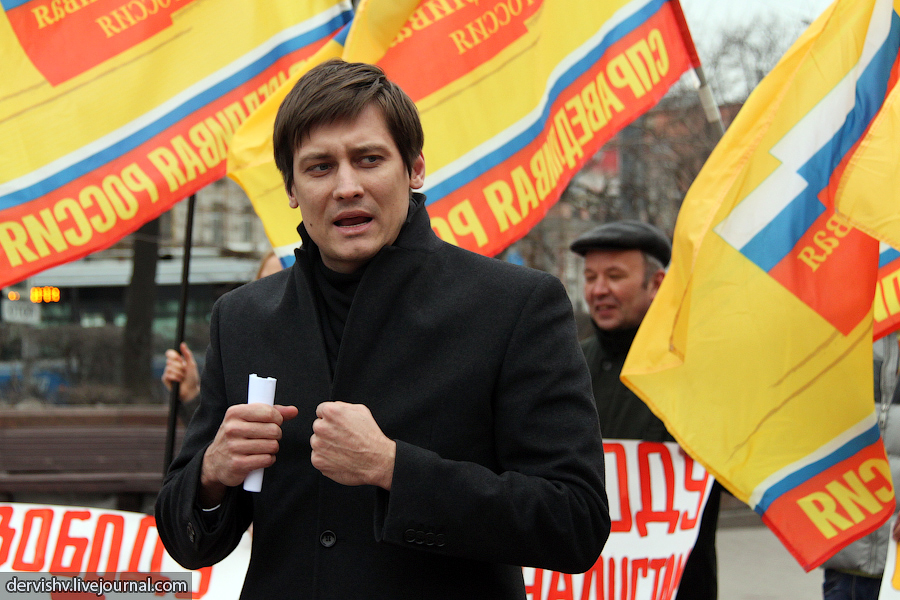Find out more about the Vremya Movement.
Election campaigns in Putin’s Russia have never been distinguished by much honesty and freedom of choice. But the toughness of the authorities in relation to opposition candidates in the current electoral cycle literally amazed everyone.
The current wave of “tightening the screws” began with the return to Russia of Alexei Navalny, who was treated in Germany after being poisoned with a chemical from the group of “Novichock” nerve agents.
In the winter of 2021, mass protests began in Russia demanding the release of Alexei Navalny and other political prisoners.They were harshly suppressed by the authorities.
In mid-March, the Municipal Russia forum organized by the United Democrats was dispersed in Moscow, and all its participants were detained and brought to administrative responsibility under Article 20.33 of the Administrative Code for participation in the activities of an “undesirable organization”.
In addition to pressure on the opposition, the persecution of independent journalists began, on April 9 searches were carried out at the editor-in-chief of Vazhnye Istorii (Important Stories) Roman Anin, and the next day at the editorial office of the newspaper.
A few days later, on April 14, the morning for the DOXA student magazine employees also began with searches, some of them were detained on suspicion of involving minors in committing unlawful acts.
On April 23, Meduza and First Anti-Corruption Media were recognized as foreign agents.
The next stage of political repression was not long in coming. In the same month, the Moscow prosecutor’s office demanded to recognize the Anti-Corruption Foundation (FBK), Navalny’s campaign offices and the Foundation for the Protection of Citizens’ Rights as extremist organizations and ban their activities. A couple of weeks earlier, a court in Rostov-on-Don arrested the father of FBK director Ivan Zhdanov, Yuri, for abuse of office.
Already on April 26, the activities of all three organizations were suspended by the prosecutor’s office pending a court decision on this claim.
As summer approached the repression intensified. On May 31, at the St. Petersburg airport Pulkovo, the former executive director of the previously liquidated Open Russia Andrey Pivovarov was removed from a flight, his apartment in St. Petersburg was searched, and later Andrey was taken to Krasnodar, where the local court sent him to a pre-trial detention center for a period of two months (July 21 the court extended Andrey’s arrest until October 29).
On June 1, searches took place at the ex-State Duma deputy and independent politician Dmitry Gudkov, as well as members of his team, Vitaly Venidiktov and Alexander Solovyov. The formal reason for conducting investigative measures was a criminal case on causing property damage. Dmitry was detained for 48 hours pending a decision as a measure of restraint, but she was never elected and Gudkov was released. Dmitry’s aunt also became a suspect in this criminal case; a preventive measure was chosen for her in the form of a recognizance not to leave the country. On June 7, Dmitry Gudkov left Russia because of the information he received that if he refused to leave, the criminal case would be brought to an end, and his brother Vladimir would be “next”.
On June 17, the day after ZakSom declared the election date, the house of the deputy of the St. Petersburg parliament Maxim Reznik was searched in a drug case. On June 18 he was placed under house arrest. The investigator refused to allow Reznik to be admitted as a notary, despite the decisions of the Constitutional Court, because of this, Maxim did not manage to fully start the election campaign.
In July-August, when the time came for registration of candidates, dozens of them across the country were denied or removed from the elections on the basis of the “law against the FBK,” which temporarily prohibits all citizens involved in the activities of “extremist organizations” from running for any elected office. 12 out of 17 candidates of the Berdsk 2021 coalition were removed from the elections on this very basis. In addition to these candidates from Berdsk, Ilya Yashin, Oleg Stepanov, Irina Fatyanova and others were not allowed to participate in the elections on the same grounds.
It is obvious that the authorities purposefully cleaned out many strong opposition candidates. According to the VTsIOM poll of August 1 this year, the rating of “United Russia” is 27.8%. It is becoming clear to the authorities that with such ratings it is extremely problematic to obtain a constitutional majority in the State Duma – the Russian Parliament. That is why only a few opposition and independent candidates are left in the pre-election race.

